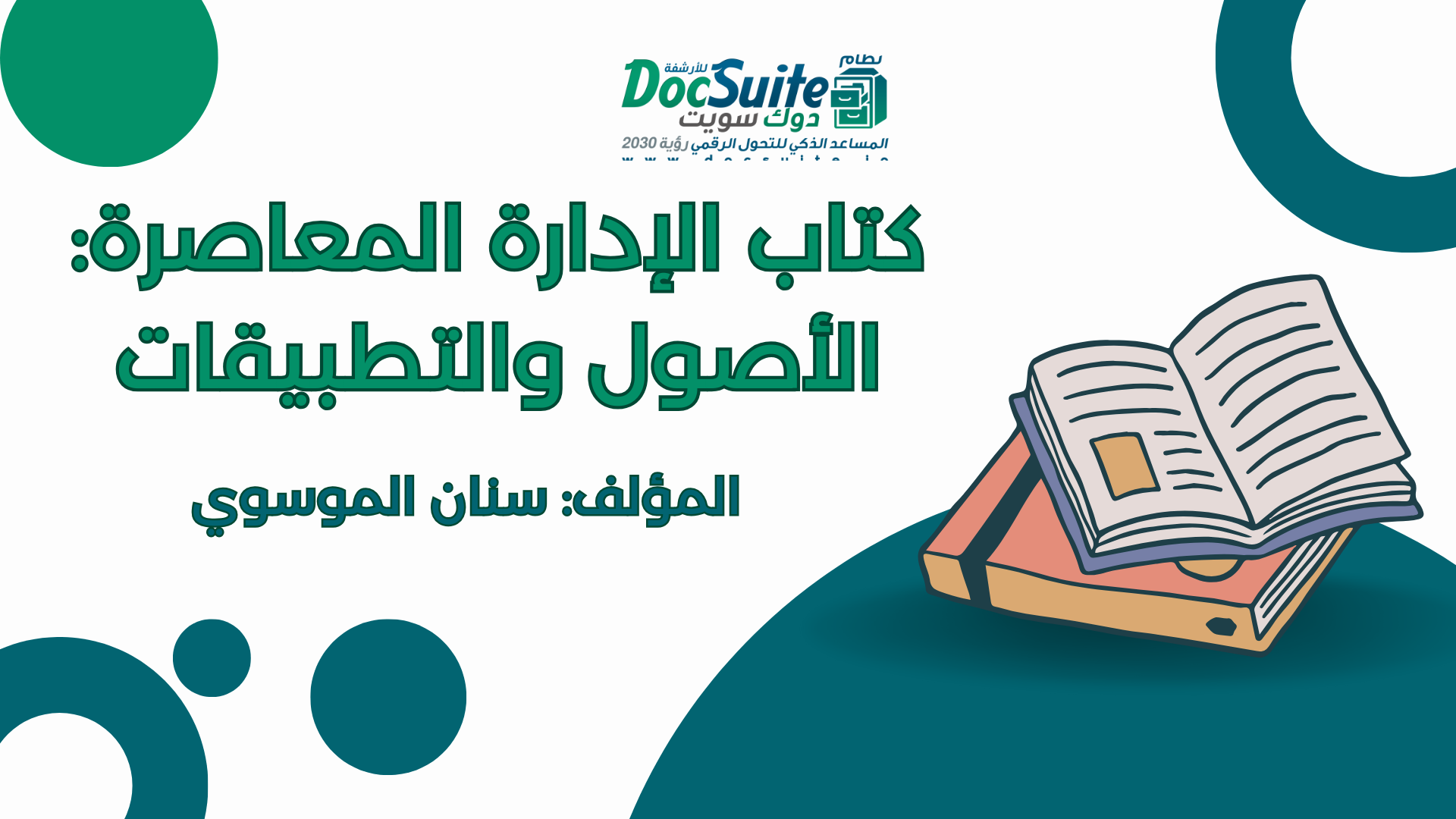Author: Sinan Al-Moussawi
Summary of the Book "Contemporary Management: Principles and Applications"
The world has witnessed radical transformations in various fields of life, including scientific, knowledge, and humanitarian sectors, in recent decades. It has also faced significant and diverse challenges, notably the scarcity of available resources, the multiplicity of objectives, the increasing societal needs, and the rapid changes in events. These require setting priorities and effectively distributing the available human and material resources.
The author of "Contemporary Management" states that what distinguishes humans from many other creatures is their social nature, meaning they cannot live without a community and collective effort to facilitate their civilized life.
The book adds that management is an essential tool for organizing collective efforts. Therefore, management has become crucial for individuals and groups in their pursuit of meeting their needs and achieving their goals. Management plays the role of an assisting element that permeates all aspects of human activity. Individuals need management to handle their personal and family affairs, and organizations need it to manage their production, marketing, purchasing, production, storage, and financing operations. The need for management does not depend on the ownership form, nature, or size of the organization because management is a fundamental process for the organization, whether it is small or large, commercial or industrial, agricultural or service-based, a company or an individual project, a club, a school, a farm, or a charitable or cooperative society.
The book points out that management applies to all aspects of human activity, and good and efficient management is a key characteristic of industrially advanced societies compared to developing ones. It is one of the intangible assets of any society. Efficient management has become an essential element of production: an activating and motivating factor, as March and Simon, prominent management scientists, stated in their book "Organizations." They considered the elements of production as five elements, four of which are tangible: (1) human resources, (2) materials, (3) machinery and equipment, (4) buildings and constructions. The fifth is an intangible element, which is management. Although management is not physically tangible, it is crucial as it enables the interaction of other material elements to produce the desired goods and services with the least possible effort and cost, thus achieving high production efficiency.
"Contemporary Management" further emphasizes that successful management can exploit all production elements to meet societal needs and improve individuals' living standards by transforming limited, unorganized resources into useful projects. At the organizational level, management's role involves setting predefined goals, providing the necessary production elements, and placing employees in positions that match their qualifications, experiences, and capabilities. This is often referred to as putting the right person in the right place.
Additionally, management involves making decisions to achieve goals with minimal money, time, and effort, ensuring efficiency and effectiveness, motivating employees, and coordinating their activities to eliminate friction, conflict, and duplication of efforts. It also involves setting specific performance measurement standards, ensuring the achievement of goals, identifying deviations, taking necessary corrective actions, and monitoring the implementation of these actions to ensure their appropriateness, rewarding the competent, and penalizing the negligent.
The book notes that although successful management is an invisible force, its absence is indicated by poor results. Signs of poor management include underestimating competitors, leading to market share loss, borrowing without repayment planning, which may lead to financial distress, expansion without adequate study, lack of complete and accurate records, poor employee selection or placement, leniency in granting credit or collecting debts, leading to frozen or bad debts, and failure to pay dues on time, harming the organization’s credit reputation.
The Relationship Between the Doc Suite HR System and the Book "Contemporary Management"
The Doc Suite HR system is used for human resource management and administrative operations management in companies. The book "Contemporary Management" covers topics on management, leadership, and modern administrative practices.
The relationship between them lies in the application of many concepts and practices discussed in the book by the DocSuite HR system, such as performance management, employee development, and the effective organization of administrative operations.
You can download the book "Contemporary Management" directly from here.
